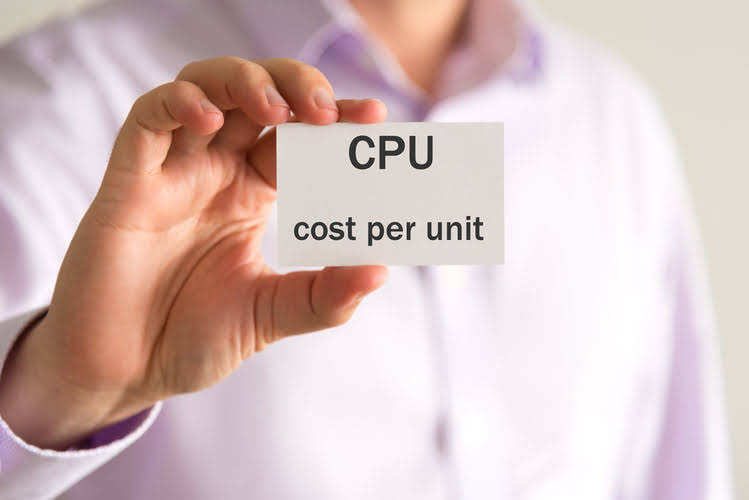
A great way to market your business is to create a website, which is considered your online home base. This is your greatest digital asset―one where customers can learn about your products or services. Jeff is a writer, founder, and small business expert that focuses on educating founders on the ins and outs of running their business.
- Unfortunately, not every business will qualify for S Corp status.
- Your business profits will be reported on Schedule C because, as a sole proprietor, you are considered to be self-employed.
- Below are some examples of small businesses where a sole proprietorship makes the most sense.
- You’ll need to have insurance and establish a DBA (doing business as) name if you plan to operate your bakery under any name except for your own legal name.
You don’t have to register the business or get a license from the state, and you only need to get a business license if your locality or industry requires it. Some freelance writers operate as independent contractors, while others start small publishing companies. A freelance writer provides content to businesses owners or writes content to sell to consumers.
Why You Should Form an LLC
While there are corporate cleaning services available, many housekeepers contract directly with their clients. This is usually a low-risk type of business, especially if the client has their own insurance. You can file an LLC directly through the Secretary of State or use a company like LegalZoom or Incfile. If you form an LLC, you will need to file articles of organization and create an operating agreement. The IRS will also assign you a new EIN, which you will use on your tax returns.
This is why a sole proprietorship works well with their business needs for licenses and tax advantages. When a business owner has personal liability protection, they can’t be held personally responsible if the business suffers a loss. This means personal assets (car, house, and bank account) are protected. To avoid these issues, you can form a limited liability company (LLC). An LLC offers many of the same advantages of a sole proprietorship while also providing asset protection.
Doing Business as a Sole Proprietorship
If you use a car for business and personal use, you have to divide expenses based on mileage for each. As of 2021, the standard mileage rate for a federal tax deduction was 56 cents per mile ($0.56). You can also deduct other vehicle costs, including depreciation, registration, loan interest, insurance and lease payments. Computer repair companies are often operated as sole proprietorships. Some business owners operate commercial shops, while others work from home.
To do this, you just need to submit a completed “Doing Business As” form at your local courthouse. The owner’s ability to use their own time to earn greater profits to offset the cost of hiring help is a crucial consideration. If the owner cannot or does not want to operate the business, it stops.
Pros and Cons of a Sole Proprietorship
The Schedule SE form must also be filed, which calculates how many taxes you owe in self-employment taxes. When you incorporate a business, or establish a limited liability company, your business and personal finances are separate. Your personal credit typically won’t be affected if your company is late on a credit card payment or has other financial issues. However, you’ll need to pay certain fees and meet certain requirements, such as creating a partnership agreement or articles of incorporation. Different than other forms of business incorporation, the sole proprietor is personally liable for any legal actions, judgments, or debts against the business.

Sole proprietors have unlimited liability for business debts, lawsuits, and other business-related obligations, while members of an LLC are released from such liability as individuals. The largest difference between a sole proprietorship and an LLC is the issue of limited liability protection. Sole proprietors often face challenges when trying to raise money because they cannot sell stock in the business, sole proprietorship examples near me which limits investor opportunity. Banks are also hesitant to lend to a sole proprietorship because of perceived additional risk when it comes to repayment if the business fails. After the paperwork is filed, the business owner must create an LLC operating agreement, which specifies the business structure. Finally, the new company must obtain an EIN—similar to an SSN, but for businesses—from the IRS.
Determine if a Sole Proprietorship Right for You
There is no legal separation between the owner and the business, so the owner gets 100% of the profits. Although all profits go to the owner, taxes are paid once, and proprietors pay taxes individually. There are very few government rules and regulations that are specific to proprietors. Sole proprietors must keep proper records, file, and pay taxes on the business income and other personal income sources. There is no entity type that fits every business, which is why this decision can be so difficult. Factors that influence the entity you choose include your business’s locations, its industry, how many owners there are, and your strategy for one day leaving your business.

Yes, according to the IRS (Internal Revenue Service) operating as a sole proprietorship qualifies as self-employment. You’ll pay income tax on your Schedule C income at your personal income tax rate. In addition to self-employment and income taxes, sole proprietorships might be subject to state and local taxes, sales and use taxes, and excise taxes. We have an ultimate guide on independent contractors’ taxes to help you further. A sole proprietorship is the simplest and least expensive small business structure to establish.
Leave a Reply